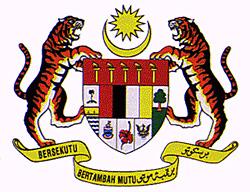@ THE 1ST INTERNATIONAL CONFERENCE BY CENTRE FOR DEFENSE INFORMATION STUDIES (CDIS) - in Havana, Cuba.
“Security Problems in Asia And Their Possible Impact on World Stability”
1. Security is a problem for every country and every region. Whether the security is seriously threatened or not depends largely on the perceptions of the countries involved.
2. The United States for example believes that its borders with Canada are secure. However to a certain extent its borders with Mexico are considered to be less secure.
3. Why the difference? Historically the United States was responsible for seizing large chunks of Mexico and since then the Mexicans had several times tried to get back some of its territory. And so there was and probably still is a security problem in North America.
4. Asia is a very big continent and different parts of it experienced different very different problems through the ages. During the period of the Great Games of the Europeans, there were constant threats of conquest and colonization. In fact many parts of Asia, East, Central, South and West were colonized or hegemonised by powerful European nations.
5. But what about Japan? Did it not try to conquer East Asia? Will it not repeat its aggression? Will East Asia be secure from Japanese territorial ambition? Will China and Korea feel secure with Japan’s amendment to its constitution to allow it to go to war again?
6. Then there is Russia, the conflicts in South Asia and of course the intractable conflicts in West Asia or the Middle East as it is referred to by the West. All these can undermine the security of Asian nations.
7. The culture of Asia differs from that of Europe. Their concept of empire does not involve conquest and the setting up of colonies. The Turkic people advanced westwards and established states in Central and West Asia, advancing even into Europe. But by and large the Turkic people adopted the culture of the local people and were absorbed.
8. The Mongols conquered much of Asia and again advanced into Eastern Europe. More than the Turkic people the Mongols allowed themselves to be assimilated by the local people. In the Turkic countries they became Turks, in China they became Chinese and in India they became Indians. They have no colonies as understood by the Europeans.
9. The Japanese did try to conquer China and Korea. But it was at the time when they were trying to emulate the Europeans. Had they succeeded there would perhaps be Japanese colonies in East Asia and Southeast Asia. But they failed and the lesson is well learnt by them. Japan by itself is not a threat to anyone’s security.
10. Other than these there is no history of military conquest and colonisation by Asian countries in Asia. The Asians of the past preferred to carry out raids and to cart away the spoils of war. But for a long time now the Asian powers have not indulged in military adventures.
11. But America has been telling Asian countries that they have a serious security problem. They have been telling us in South East Asia (S.E.A.) ever since World War II ended that we face the threat of Chinese invasion.
12. They fought a long war in Vietnam and promoted the domino theory – which says that if Vietnam fell to the Communists than one by one the countries of S.E.A. will fall to the Chinese – through Communism.
13. Well, South Vietnam did fall to the Communist. But none of the S.E.A. countries have gone the way of Vietnam. In fact Vietnam has now adopted the strategies of the S.E.A. countries and is inviting foreign investments which have made Vietnam the fastest growing East Asian country after China.
14. The threat from China and the Communist ideology did not materialise. But the United States is still insisting that we need its 7th Fleet to provide security for us.
15. S.E.A. is the home of the Spice Islands. For almost a millennium S.E.A. states traded with the Asian countries like China, India, and Arabia. Despite the fact that we South East Asians used to levy taxes on trading ships passing through our waters something which the Europeans describe as piracy, the home countries of these Asian traders, powerful though they were, never sent their military forces to punish us, even when some of their people were killed.
16. But when the Europeans finally reached us in their armed merchantmen, they demanded trade monopoly and the right to build fortified trading stations on our land. After that they came with their armed force to conquer and colonise us. The Portuguese occupation of Malacca is a good example. They came for the first time in 1509 and two years later an armada under Alfonso de Albuquerque conquered Malacca. We can say the Europeans brought a security problem with them.
17. China was a huge country with millions of people and located only 2000 kilometres from Malacca, but they never threatened our security and certainly they never conquered us.
18. Portugal was 12,000 miles from Malacca (via Cape of Good Hope) but they actually attacked the tiny state and made a colony of it.
19. China has no history of military conquest with the purpose of acquiring territory. So why should we feel insecure because of China, as we are informed we should. We really do not think that China poses a security threat in East Asia, not even Japan should see in China a threat to its security. Yes, what about Tibet?
20. Well, what about Guantanamo Bay? Has it always been a part of the United States of America? The Chinese have more rights to be in Tibet than the Americans in Guatanamo Bay,
21. The United States has convinced Japan that China is a threat to its security. Therefore Japan must have American military forces based in Japan and paid for by the Japanese.
22. Is there a Chinese threat to Japanese security? There is a dispute over some islands but will China declare war on Japan because of this little island.
23. China has perhaps the biggest standing army in the world. With its new found wealth its military forces are now well equipped. But is it a threat to the security of its neighbours and to the rest of the world?
24. Frankly I do not think so. China knows it needs peace and good relations with the rest of the world if it is going to prosper, if it is going to feed and clothe its 1.3 billion people. Trade with the rest of the world is the only way for China to give its people a decent life.
25. War is no longer an option in the settlement of conflicts between nations. This is because the capacity of modern weapons to inflict death and destruction is so enormous. Additionally war has become prohibitively costly. Even the United States rich as it is said to be, is now practically penniless because of the war in Iraq.
26. China is doing very well without war. What is there to gain for China if it goes to war. Only death and destruction. But of course when the United States persuades Japan and Korea that China is a threat then it must prepare for its defence.
27. Is China entitled to defend itself? Of course it is. When Japan lost the Pacific War the victors imposed on Japan the condition that it may only spend 1% of its GDP on its defence force. In 1945 1% of its GDP was hardly enough to buy uniforms. But today 1% of Japan’s GDP would be more than what Britain spends on its forces. The Japanese Defence Force is now quite big.
28. If Japan can spend 1% of its GDP on defence cannot China spend the like amount on its defence. Surely it is entitled to. And so China’s military forces must be pretty big. Still it will not be as big as that of the United States. With the United States rattling its rockets and nuclear warheads China must spend money on its security needs.
29. So who is causing countries in Asia to feel insecure? It certainly is not the Asian countries. It is the United States, the most belligerent country in the history of mankind.
30. Of course it is not only in East Asia that the United States is creating a feeling of insecurity. Look at Afghanistan, Iraq, Syria and Iran. These countries feel most insecure. They are being threatened with invasions, shock and awe, regime change etc etc.
31. When countries feel insecure they must find ways to provide for their security. During the Cold War period they could play the two blocs against each other. But now the Cold War is over. So they must possess their own defence capability.
32. There is a belief that the world would be safe so long as the nuclear powers provide nuclear deterrence. But the nuclear powers have shown that they are the source of military threats and not the non-nuclear powers. So the idea of confining nuclear capability to the established nuclear powers does not hold water. These powers have allowed their protégés to have nuclear warheads while preventing the countries threatened by these protégés from having any defence capability at all.
33. That is the situation in West Asia. This had always been a turbulent region, mainly caused by the Great Games played by European powers. Still 60 years ago the Middle East was relatively peaceful.
34. But to solve the Jewish problem in Europe, Palestinian Arab land has been seized in order to create the state of Israel. Since then the violence in that region has escalated with each passing year. And now the violence has spread to the rest of the world.
35. Would there have been Osama bin Laden and Al Qaeda if there had been no Israel. The West should not go into self denial. Admit it. Until you admit the truth, that it was the seizure of Arab Palestinian land, and the expropriation of land belonging to Arab owners and the expulsion of the Palestinians from their homeland, until you admit this truth, the problem of the Middle East will not be resolved.
36. Because of the creation of the state of Israel we are plagued by terrorism. Let us be frank and fair. The so-called terrorists are not the only people who blow themselves up with bombs or crash their planes into towers. Whoever creates terror or cause people to be terrified must be classified as terrorists. If we think of the thousands of innocent people who are terrified of being killed or maimed by the bombs, the missiles, the shells and the rockets, in particular those covered by Depleted Uranium then we must conclude that the countries whose armed forces employ these weapons are also terrorists. Indeed they are worse than the few individuals who sacrificed themselves in order to retaliate for the killings of their people and seizure of their land by the terrorist states.
37. The spread of individual terrorism is due to these people possessing no other means to fight the terrorist states. They do not have warplanes, armoured cars and tanks, warships etc to hit back at their enemies. Therefore they have no choice but to tie explosives to their bodies and blow themselves up. Whether they would go to heaven or not is irrelevant, for we know even though we desire to go to heaven we would not blow ourselves up in that way.
38. As to targeting civilians, the terrorists state, also target the civilians which they now call collaterals. More innocent people are killed by terrorist states than are killed by suicide bombers.
39. The real threat to everyone’s security is caused by the people who continually produce new and more efficient weapons. The cost of these weapons have escalated greatly and yet they do not give any return on investment, nor can they contribute anything to society at peace. This fact drives the countries producing these weapons to seek war. Then these weapons can actually be used. That these weapons can destroy whole countries and hundreds of thousands of people is irrelevant. Call them collaterals and forget about them.
40. In order to get a return on their investments, the producers of these very costly weapons have aggressively promoted their sale. Countries have been persuaded to equip their armed forces with these weapons, incurring huge expenditure. If a country refuses to buy than the neighbouring country would be persuaded to buy. Inadvertently an arms race would result. As the weapons keep on being updated, expenditure on arms by poor countries would make them even poorer.
41. These weapons including the warplanes, guns and rocket launchers may only be good for parades. But any conflict with neighbours may end up with wars in which these weapons would be used. The people who sell arms are in fact the people who create insecurity.
42. Apart from the fighting in West Asia, the rest of Asia is quite peaceful. And because we are peaceful we really feel quite secure. This world need not feel insecure because of Asia. What is happening in Asia is a race to give the people of the various countries a good life. Asia is interested in economic development. One after another the Asian countries are turning into factories for the world. To prosper they will not export insecurity through the promotion of their ideologies. Asia wishes to see the world prosper because a prosperous world would become a good market for Asian products.
43. Asia should help stabilize the world. Unfortunately there are countries outside Asia which do not want to see a stable prosperous Asia. These countries threaten Asia’s security and if Asia arms to the teeth it is because of these countries.
44. Asia has not interfered in the internal affairs of other countries. And God knows these countries’ internal affairs, their treatment of their people, their blatant disregard for human rights etc do not bear examination. Asia has every right to publish the ratings in term of various abuses in their countries and let the world be enlightened. But Asian have refused to take the moral high ground, not because we are not qualified to do so but because we believe in the freedom of every country to manage its internal affairs by itself. We believe our security is best guaranteed by a prosper-thy-neighbour policy. We believe when we prosper other people we will not have their problems spilling over into our country. We believe we will enjoy security that way.
Thank You.
(Tun Dr Mahathir Mohamad).
delivered in Havana, Cuba on the 21st of April, 2008.


















No comments:
Post a Comment